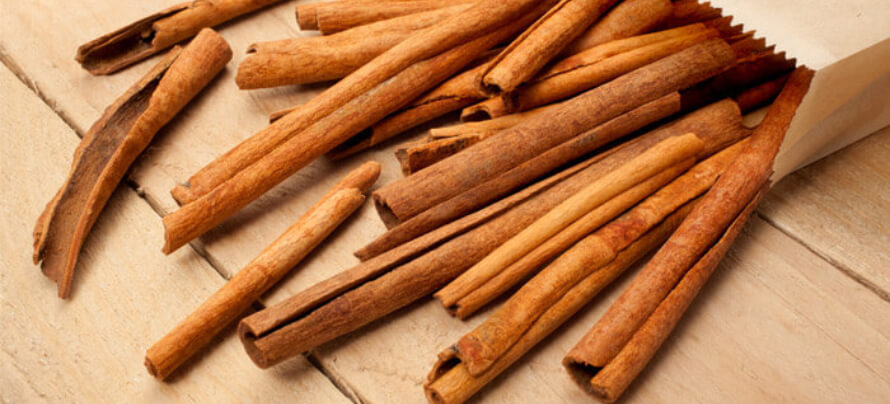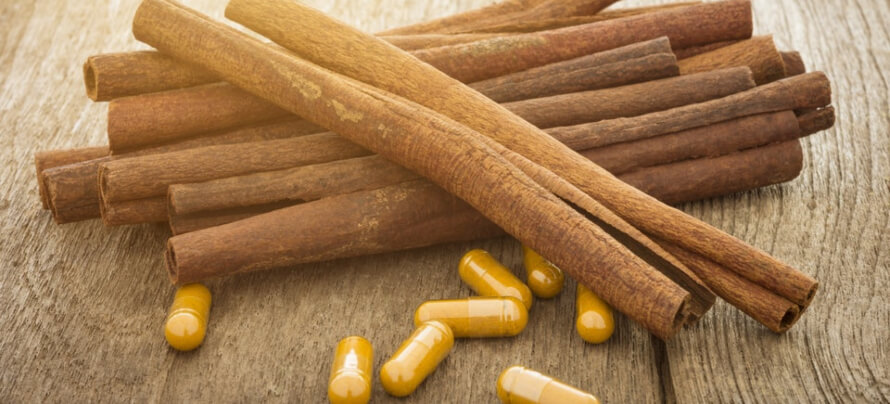Key Takeaways
- Cinnamon is a spice primarily stated to help manage blood glucose levels by helping insulin work better, but also taken for cardiovascular and aesthetic reasons.
- Cinnamon does help control blood sugar levels, but studies don’t paint it out to be a panacea. It’s more of a supporting player than a main actor.
- Cinnamon serves a great role as an additive factor in helping manage diabetes and metabolic syndrome, mostly for practical reasons like how easy it is to put a cinnamon stick in your tea, but it’s a far cry from being a go-to potent supplement.
Up here in Canada we have a few national animals, all of which are weird.
The moose, the goose, and the loon—but none are as notable internationally as the beaver. Got into eco protection before it was cool, has prominent buck teeth, and their tails are reminiscent of ping pong paddles.
It’s most well known, rightfully so, for eating trees. Not so much for nourishment but more so for habitat building—it’s not weird enough to eat trees for nutrition, leave that to humans.
What’s that, you say? We don’t eat trees? Yeah, we do, cinnamon is tree bark. Honestly, what haven’t humans eaten at this point—half of the historical section in toxicology classes is “this bloke ate this and died so now we know not to eat that.”
But other times the tasty things don’t kill us. Eat the flesh of a tree to season your pancakes, pour the tree’s blood over it, cinnamon and maple syrup is a nice combination.
So then, how did somebody channel their inner beaver and somehow wind up creating one of the world’s most popular spices? Can you make spices out of the birch tree out back? Does Canada really have a five dollar coin called the foonie?
1 to 3 of these questions will be answered if you stay tuned.
Table of Contents
+
What Is Cinnamon?

Cinnamon is a spice that’s obtained from the bark of trees that, aside from being used as a tasty seasoning, also has a history of being used medicinally.
While the water soluble components have their place in seasoning, usually in the form of a “cinnamon stick” placed in a cup of tea or other beverage, the fat soluble parts have also recently seen an upsurge in usage in the form of “cinnamon oil”—initially used just for aromas, cinnamon oil is now touted to have other benefits when applied to the skin.
This is notable since, when discussing different types of cinnamon, some people actively avoid the fat soluble components known as the “coumarins.”
Coumarin is a molecule, found in many plants but in notably high levels in cinnamon, that when too much is taken is thought to cause organ damage in research animals. The research is a bit weird, since coumarin and their metabolites have sometimes protected the kidneys, but some people avoid coumarin anyways.
They avoid them by selecting among the different types of cinnamon.
The “different types” of cinnamon refer to how the term “cinnamon” can refer to any bark that has a similar sensory profile that comes from Cinnamomum trees. Among the types of cinnamon the most common ones you can find are called cassia, saigon, and ceylon.
Cassia cinnamon comes from the Cinnamomum cassia tree, and is the most common form of cinnamon currently on the market. It’s bark is thicker and rougher than ceylon.
Ceylon cinnamon refers to cinnamon from the Cinnamomum verum (synonymous with Cinnamomum zeylanicum) and is sometimes referred to as “true cinnamon.” It’s thinner, smoother, and has a lower coumarin level than does cassia cinnamon. Some people think ceylon is ideal for supplementation.
Saigon cinnamon refers to cinnamon from the tree Cinnamomum loureiroi and is sometimes called Vietnamese cinnamon. It has quite a high oil content and is very aromatic, but also contains the highest coumarin content. Best for scents and oils, not so much oral intake.
Ultimately, cinnamon is a term referring to aromatic bark from the Cinnamomum genus of trees that comes in three forms based on the tree’s species—cassia being the common form somewhere in the middle, ceylon being a form lower in coumarins ideal for consumption, and saigon being a more aromatic form ideal for oils and aromatics.
Why Do People Supplement with Cinnamon?
People supplement with cinnamon for various reasons, most of which involve blood sugar.
Cinnamon has been touted as an easy way to reduce blood glucose levels, which are abnormally high not only in type II diabetics but also in the unhealthy state that can lead to diabetes known as metabolic syndrome.
Metabolic syndrome is a state of health, heavily influenced by dietary and environmental factors, that is essentially type 2 diabetes, hypertension, high blood lipids, weight gain, and a whole host of other disease states or heightened levels of things that cause disease states.
It can be seen as a snowball starting it’s inevitable charge down the hill becoming huge at the end (which is death.) Thankfully it’s not inevitable and can be reversed but requires diet and habit changes ASAP.
Along these lines, there are also claimed improvements in other measurements of glucose control. These include claimed improvements in insulin sensitivity (how well your primary glucose regulating hormone can work) and reduced HbA1c, or glycated hemoglobin, which is a proxy measurement for the bad effects high glucose can have on your body over time.
Beyond the collection of claims directly related to improved glucose management there are also claims that are related to benefits you may feel when glucose is stabilized. This includes more energy and less fatigue, improved antioxidant defenses in the body, and less inflammation.
Those claims, however, are conditional on the person supplementing having those problems due to poor glucose control and the assumption that cinnamon helps.
Other, independent, claims include weight loss and improvements in cardiovascular health. There are also a collection of claims pertaining to improved cognition, usually around preventing cognitive decline during aging (rather than an inherent boost like nootropics would give.)
There’s also a collection of claims that hinge on cinnamon’s antibacterial and antiviral properties, such as the potential for cinnamon to be useful for dental health when used in toothpaste or in chewing gum.
As a general rule of thumb, cinnamon is most commonly claimed to improve glucose control. However, anything beneficial that happens when glucose is better controlled also ends up being an inherent claim of cinnamon.
What Are the Health Benefits of Cinnamon?
Cinnamon, be it in the form of a spice or a supplement, has various proven health benefits.
Cinnamon and Blood Sugar

The main claim to fame for cinnamon is reducing blood sugar levels and helping to manage type II diabetes and what’s known as “prediabetes”—basically when you don’t actually have diabetes but are on course to develop it.
There’s quite a lot of data on this topic so, rather than trudging through a random study here and there, we can go straight to the level of meta-analysis (studies of studies).
Meta-analyses on the topic of cinnamon and everything related to blood glucose find reductions in fasting levels of glucose (a good thing for type 2 diabetics.) However, sometimes there’s no significant effect on HbA1c—when an effect on HbA1c is found it tends to be rather small in magnitude.
The studies referenced above tend to use cinnamon in the range of 1 to 6 grams a day, but other studies have found benefit with doses as low as 500 mg. There doesn’t seem to be a major dose-dependent relationship (in other words, more isn’t better) relationship based on these studies.
In practical terms this can be interpreted as a beneficial effect of cinnamon, but not an astounding one. Rather than being the main thing you use for treatment, it’s something you could potentially take in addition to the major players as an extra small step forward.
This is a far cry from cinnamon being touted as a cure for diabetes, but at least it’s something.
At the end of the day, while cinnamon appears to be beneficial for type 2 diabetes management it doesn’t seem beneficial enough to warrant spending a decent amount of money on it. Regardless, putting a cinnamon stick in your tea may be a nice additional touch.
Cinnamon and Cardiovascular Health
While improving blood sugar control can improve cardiovascular health, I’m going to be addressing other aspects of heart health since I just addressed the sugary stuff.
Studies on cinnamon and glucose tend to also measure blood lipids and cholesterol since if you’re getting one data point why not just collect a few others at the same time? When assessing these studies, one meta-analysis found improvements in triglycerides and total cholesterol.
However, when specifically looking at LDL cholesterol and HDL cholesterol (“bad” and “good” cholesterol respectively) there wasn’t any major change, other meta-analyses might find a small increase of HDL when cinnamon is used in diabetics.
The magnitude of change on lipids is rather small instead of being something huge like how fish oil influences triglycerides. Not something strong enough to rely on alone, it seems, but could be a nice additive factor.
Furthermore, some other studies have found improvements in blood pressure with the latter reference citing an estimated 5.39 mmHg systolic and 2.6 mmHg diastolic blood pressure reduction. Nothing to write home about, but nothing to sneeze at either.
The benefits of cinnamon on other parameters of heart health are all mild, and at times not overly reliable to expect. However there does seem to be a positive action repeatedly shown that’s too small to “make or break” anything but may be another nice helping touch.
Cinnamon and Dental Health
The interaction between cinnamon and dental health is due to the oil component of cinnamon having antimicrobial properties, mostly the molecule called cinnamaldehyde.
Alongside other plant oils like clove, garlic, and green tea oil cinnamon appears to have the ability to destroy bacteria that cause cavities (dental caries)—although at times cinnamon outperforms clove oil.
While human studies are limited, cinnamon appears to be similar in potency to chlorhexidine gluconate (a common mouthwash) in reducing signs of plaque and gingivitis.
While promising, there have been reports of some people experiencing allergy-like effects after using cinnamon oil though—known as intraoral allergic contact dermatitis. There has also been a case of contact mucositis reported but with chewing gum containing cinnamon.
Ultimately, cinnamon appears to be a promising dental health supplement but it’s not amazing in potency. While it performs equally to a pharmaceutical reference it did not exceed it and cinnamon oil usage may be linked to inflammatory issues in some people’s gums.
What Does Cinnamon Not Do?
The health benefits of cinnamon are significant, but that doesn’t mean it’s a cure all.
Whenever a new supplement becomes popular for one purpose, it’s common for people to say it helps with many other purposes, too. And weight loss tends to be one of the biggies in this regard.
Cinnamon and Weight Loss Benefits

This section is more of a “technically right but a practical misnomer” than anything. If we’re to be fully accurate then, yes, cinnamon can “reduce weight.”
This comes from various studies in metabolic syndrome and these in situations where cinnamon can improve health, you may see reductions in waist circumference.
However, this is thought to be a secondary effect of improving health in this state. Even a supplement like berberine, which is not thought to be a fat burner in the slightest, can reduce waist circumference in metabolic syndrome to a large degree if it improves health.
Or in other words, this is not likely to be an inherent fat-burning effect.
While somebody who is type 2 diabetic and has a high degree of abdominal fat may see a reduction in waist circumference, cinnamon doesn’t inherently have fat-burning effects and is likely to have no effect outside of reducing waist circumference.
Cinnamon and Skin Health
The claims surrounding cinnamon and the skin refer to cinnamon oil, rather than the powdered spice, and seem to pertain to antimicrobial and anti-inflammatory effects.
When placed in isolated human skin cells, ceylon cinnamon essential oil can reduce inflammation caused by a stressor, with another study noting that cinnamon has antibacterial properties against bacteria that cause acne.
However, unlike the dental health section there do not appear to be applied human studies at this point in time. There is also not much direct comparison studies for us to guess at cinnamon’s potency since, ultimately, why use cinnamon oil for acne if other oils are significantly better?
Cinnamon oil may have promise for skin health in the future but right now it is understudied and, while a bit promising, has yet to show actions or potency that make it seem better than other possible options. The benefits observed have been observed before and are not remarkable.
What Are the Benefits of Different Kinds of Cinnamon?
When it comes to supplementing cinnamon there are a few options and supplementation isn’t necessary since, you know, you can buy cinnamon everywhere.
Cinnamon Tea Benefits
The primary benefits of cinnamon tea, and this includes using a cinnamon stick in any other type of tea, is that it’s convenient and the water soluble components dissolve into the liquid whereas the fat soluble components stay out.
As the beneficial components are water soluble, and the potentially concerning coumarins are not, cinnamon tea becomes a practical way to separate the good from the bad.
These benefits also apply to “cinnamon water,” which is basically just cinnamon tea but without the actual “tea” component, since it’s a simple hot water extraction.
Cinnamon Pills Benefits
Cinnamon pills provide the greatest convenience out of all forms, since you can just pop them anytime and get on with your day, but understandably are also the most expensive form.
When it comes to the actual health benefits of cinnamon there’s, largely, no difference between supplements and using the spice or sticks. All that matters is the overall dose of cinnamon you get and, via either the source or extraction method, the amount of coumarins.
Cinnamon Powder Benefits
Cinnamon powder is the cheapest form of supplementation but also contains the coumarin component. A total non-issue if you simply want to spice something, a potential issue if you’re going to be taking high doses for supplemental purposes though.
You can opt for ceylon cinnamon, if you want to reduce the coumarin content, but if you get too fancy in seeking out the “best” source of cinnamon powder then you might lose the benefit of powder being easy on the wallet.
Ideally, opt for a supplement or use some manner of hot water extraction (like the teas) if you decide to take a large dose or cinnamon daily.
Cinnamon Oil Benefits
For all intents and purposes, the other forms of cinnamon can be categorized as “best” and “worst” forms but cinnamon oil is a different beast with different intents.
Rather than removing all fat soluble components from the cinnamon to get benefits to blood sugar, with the cinnamon oil we’re actually trying to get as many aromatic compounds in the oil as possible. Different supplement for different purpose.
Ceylon Cinnamon Benefits vs. Cassia Cinnamon Benefits

A discussion that pops up from time to time is the best species of cinnamon to use, with most talking points being related to the coumarin content.
The coumarin content, a group of fat soluble components that in high doses are generally seen as unhealthy, are present in all types of cinnamon. However, they’re in lower doses in cinnamon from the Cinnamomum verum (or Zeylanicum) tree—this is ceylon cinnamon, also known as “true” cinnamon.
If you are using cinnamon in a manner where you’re eating or otherwise applying the fat soluble component of cinnamon, such as in cooking or using the oil, opting for ceylon cinnamon may be ideal rather than using cassia (common cinnamon.)
However, there shouldn’t be much of an issue with hot water extracts since whether or not you have cassia or ceylon the coumarins aren’t going to be in the liquid portion—excluding a few little flakes from the cinnamon stick here and there, but if such a small dose was harmful then cinnamon would be labelled a toxin rather than a spice.
You can still opt for ceylon sticks for your tea if you desire, no harm in doing so, but ceylon tends to also be more expensive.
A general rule of thumb is to seek cassia for water extracts (like cinnamon sticks) and ceylon for when the fat soluble components will be consumed (like when using cinnamon oil) unless money is not a concern in which cause just go for ceylon.
Does Cinnamon Have Any Side Effects?
If we conveniently exclude the coumarin issue then the other components of cinnamon do not have any major side-effects aside from a potential allergic reaction to cinnamon itself.
If cinnamon oil, or perhaps cinnamon in chewing gums (just to increase exposure time to the gums) cause redness and inflammation then it may be best to not use cinnamon supplements.
Of course, if it does manage to reduce blood glucose a lot for you (perhaps the genetic monkey wrench works in your favor this time) then it would not be unreasonable to expect potential lightheadedness from hypoglycemia (low blood sugar.)
If we look at the coumarins then, if the claims they cause organ damage are true, then it’s unlikely that we would be able to perceive it. After all, the only types of organ damage we perceive is severe organ damage like breaking a Guinness world record for most Guinness drank or eating a polar bear’s liver (aka. arctic karma.)
What Is the Clinically Effective Dose of Cinnamon?

Studies, at this moment in time, are a bit all over the map when it comes to dosing and while we can establish some manner of effective range it’s hard to pinpoint an “ideal dose” of cinnamon.
When using the spice itself, the range of 1 to 6 grams seems to be effective. If you’re using some manner of hot water extraction, like cinnamon water or a tea, then this dose remains the same. Just place the cinnamon in the water and remove it after about five minutes (this is also why people use cinnamon sticks for this purpose, easier to remove than powder.)
Dietary supplements that use water extracts of cinnamon seem to be effective at 500 mg, but may also branch higher into the gram dosages. Be aware that if you see a supplement that reads “Cinnamon extract 10:1” that the extract is 10-fold concentrated, and 100 mg of this would be equivalent to 1,000 mg of the spice itself.
As for cinnamon oil there’s no way to estimate an ideal dose at this time due to a lack of studies on the topic but general rules of topical oils apply—a thin layer, rub it a little bit (or swish, if using it for dental purposes) and if there is any greasy feeling left over you used too much.
When using cinnamon oil be on the lookout for any inflammation at the site of application, you may get unlucky and need to discontinue using it if cinnamon oil causes inflammation for you.
The Bottom Line on the Benefits of Cinnamon
When it comes to the health benefits of cinnamon, it’s best viewed as an additional factor rather than a primary factor. Something that you take in addition to “the thing that works” rather than being the stand alone supplement you take.
Having a bit of cinnamon slipped into an anti-diabetes supplement, or using a cinnamon stick in your tea, can both go quite a ways in helping you regulate blood sugar on the cheap. Perhaps it can even help stave off gingivitis a tad.
However, it’s potency is somewhat overblown and other supplements (such as berberine) can give you significantly more bang for your buck.
It’s also not going to help you lose weight, gaining muscle is doubtful, and putting cinnamon oil on and/or in things is currently in a state of hype exceeding evidence.










